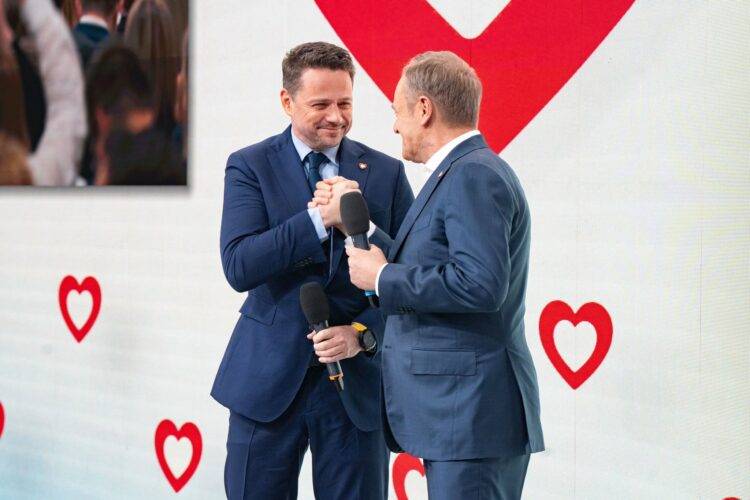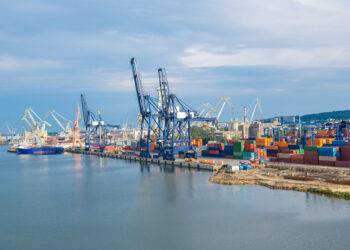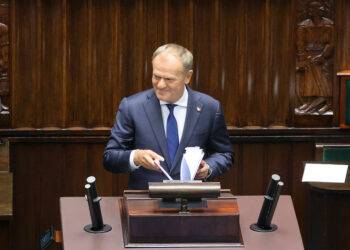Rafał Trzaskowski, the candidate of the Civic Coalition (Koalicja Obywatelska) and current mayor of Warsaw, is emerging as the clear frontrunner in Poland’s upcoming presidential election, according to the latest Opinia24 poll conducted for TVN24. The survey reveals that Trzaskowski would win both the first and second rounds of voting, solidifying his position as a leading contender for the presidency.
In the first round, Trzaskowski is projected to secure 33% of the vote, comfortably ahead of his closest rival, Karol Nawrocki of the ruling Law and Justice party (Prawo i Sprawiedliwość), who is expected to garner 22% support. Sławomir Mentzen of the far-right Confederation party (Konfederacja) rounds out the top three with 15%.
Other candidates trail significantly. Szymon Hołownia, Speaker of the Sejm and representative of Poland 2050 (Polska 2050), and Adrian Zandberg from Razem are tied at 5% each. Grzegorz Braun, a Member of the European Parliament associated with Konfederacja, is at 4%, while Magdalena Biejat of Lewica registers just 2% support.
Second Round Projections
Should Trzaskowski face Nawrocki in a runoff election, he is predicted to win decisively with 44% of votes compared to Nawrocki’s 38%. Notably, 18% of respondents remain undecided. This trend aligns with previous polls indicating Trzaskowski’s strong lead over other potential second-round opponents, including Mentzen.
The data underscores Trzaskowski’s broad appeal across Poland’s diverse electorate. His campaign focuses on progressive policies and urban development, leveraging his success as Warsaw’s mayor. Meanwhile, Nawrocki’s platform emphasizes continuity with Law and Justice’s conservative agenda.
Voter Turnout Concerns
While Trzaskowski’s lead is significant, voter turnout remains a critical factor. Approximately 68% of respondents declare they are certain to vote in May’s election, with another 21% indicating they will likely participate. However, 7% say they will not vote, raising concerns about potential abstention rates.
Historical Context
The 2025 presidential election in Poland follows a dramatic political shift that occurred during the 2023 parliamentary elections. The conservative Law and Justice (PiS) party, which had governed Poland for eight years, lost its parliamentary majority despite winning the largest share of votes. This paved the way for a coalition of opposition parties—including the centrist Civic Coalition (KO), the center-right Third Way, and the Left—to form a new government under Prime Minister Donald Tusk.
The new coalition government has prioritized restoring democratic standards, reversing PiS-era policies, and strengthening Poland’s alignment with the European Union and NATO. However, tensions remain high due to ongoing polarization between the coalition and PiS, which now operates as a staunch opposition force. President Andrzej Duda, a PiS ally, continues to challenge the government’s initiatives, creating legislative hurdles that underscore Poland’s deeply divided political landscape.
This election is seen as pivotal in determining whether Poland will continue on its current pro-European trajectory or revert to more conservative policies championed by PiS. With Civic Coalition currently in power, the outcome could further reshape Poland’s domestic and international standing.
Methodology
The Opinia24 survey was conducted using computer-assisted telephone interviews (CATI) and online interviews (CAWI), sampling a representative group of Polish citizens. The margin of error was not disclosed but typically ranges around ±3 percentage points for similar studies.


















